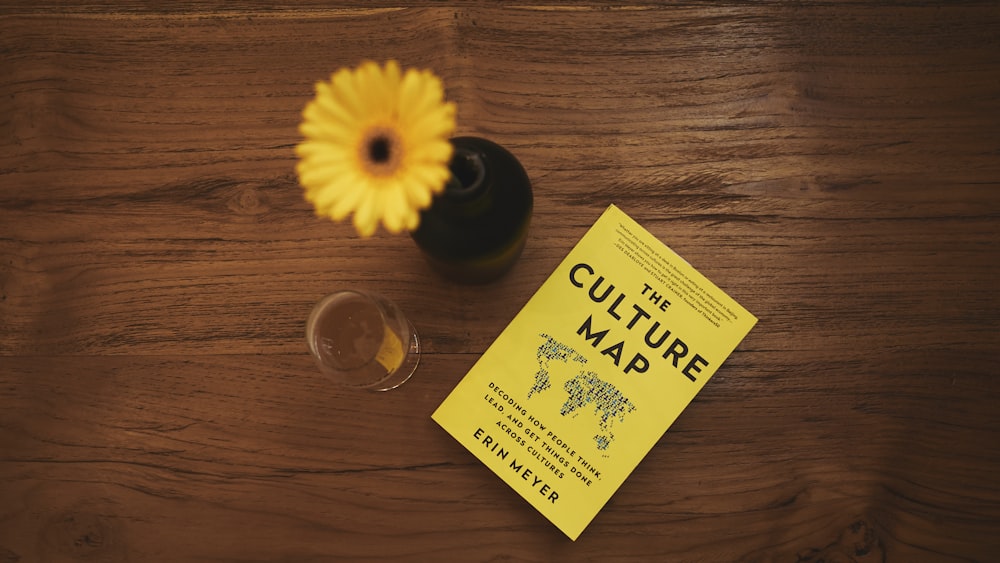I. PHẦN MỞ ĐẦU
Khi nhắc tới chủ đề văn hóa, ắt sẽ có rất nhiều bạn tò mò về những từ vựng nằm trong chủ đề này là gì. Bởi lẽ chủ đề về văn hóa là chủ đề vừa quen thuộc nhưng cũng vừa thú vị, vậy hãy thử tưởng tượng nếu bạn bước vào phòng thi IELTS và giám khảo hỏi bạn những câu hỏi liên quan tới chủ đề này thì các bạn sẽ nói gì về nó. Vậy để cho bài nói thêm phong phú thì từ vựng đóng một vai trò vô cùng quan trọng phải không nào? Vậy hôm nay chúng ta hãy cùng nhau học những từ vựng về chủ đề văn hóa nhé!!!
II. CÁC TỪ VỰNG VỀ CHỦ ĐỀ VĂN HÓA
1. Value (n): giá trị = values [plural] beliefs about what is right and wrong and what is important in life
Eg: We need to be guided by our moral values.
Eg: The school's core values include the ability to work with others.
Eg: The young have a completely different set of values and expectations.
2. Civilization (n): văn minh = [uncountable] a state of human society that is very developed and organized
Eg: The Victorians regarded the railways as bringing progress and civilization.
Eg: Environmental damage threatens the whole of civilization.
Eg: Could this be the end of civilization as we know it?
3. Diversity (n): sự đa dạng = [uncountable, countable, usually singular] a range of many people or things that are very different from each other
Eg: People are being encouraged to celebrate the diversity of their communities.
Eg: The south-east has the highest diversity of freshwater fish in the country.
Eg: The teaching profession does not yet reflect the diversity of the population.
Eg: The producer was under pressure to maintain a diversity in his output.
4. Uniqueness (n): sự độc đáo = the quality of being very special or unusual
Eg: The uniqueness of his style of writing really impresses me.
Eg: The author stresses the uniqueness of the individual.
5. Misconception (n): sự hiểu sai = a belief or an idea that is not based on correct information, or that is not understood by people
Eg: Let me deal with some common misconceptions.
Eg: Their views are based on misconception and prejudice.
Eg: We hope the documentary will dispel certain misconceptions about the disease.
Eg: A popular misconception is that immigration is bad for the economy.
6. Globalization (n): sự toàn cầu hóa = the fact that different cultures and economic systems around the world are becoming connected and similar to each other because of the influence of large multinational companies and of improved communication
Eg: These days, globalization is they key point to boost national economy and increase the connection among countries.
7. Stereotype (n): khuôn mẫu = a fixed idea or image that many people have of a particular type of person or thing, but which is often not true in reality
Eg: He doesn't conform to the usual stereotype of the businessman with a dark suit and briefcase.
Eg: Not all areas of the country fit the stereotypes of the poor north and the rich south.
8. Heritage (n): di sản = the history, traditions, buildings and objects that a country or society has had for many years and that are considered an important part of its character
Eg: Folk songs are part of our common heritage.
Eg: I will not abandon my religious heritage.
Eg: It's a family-run business that traces its heritage back to 1884.
Eg: She made a conscious attempt to explore her Jewish heritage.
9. Exchange (n): sự trao đổi = an act of giving something to somebody or doing something for somebody and receiving something in return
Eg: The exchange of prisoners took place this morning.
Eg: We need to promote an open exchange of ideas and information.
Eg: She had a full and frank exchange of views with her boss before resigning.
Eg: We get together once a month for a mutual exchange of ideas.
10. Integration (n): sự hội nhập = [uncountable, countable] the act or process of combining two or more things so that they work together
Eg: The aim is to promote closer economic integration.
Eg: His music is an integration of tradition and new technology.
Eg: We are working to bring about closer political integration in the EU.
11. Minory (n): thiểu số = the smaller part of a group; less than half of the people or things in a large group
Eg: Only a small minority of students is/are interested in politics these days.
Eg: Only a tiny minority of products is/are affected.
Eg: For a minority, the decision was a disappointment.
Eg: Minority interest groups have gained disproportionate influence.
12. Tradition (n): truyền thống = a belief, custom or way of doing something that has existed for a long time among a particular group of people; a set of these beliefs or customs
Eg: The company has a long tradition of fine design.
Eg: The company has continued its tradition of innovation.
Eg: The British are said to love tradition (= to want to do things in the way they have always been done).
Eg: They broke with tradition (= did things differently) and got married quietly.
13. Native (adj): bản xứ = a person who was born in a particular country or area
Eg: The 18 year-old Rome native excels in ballet, hip-hop and tap.
Eg: She was a native of Edinburgh, born and bred.
Eg: A native of Austria, he emigrated to London in 1956.
Eg: She was not a native of the island, but had lived there for many years.
14. Assimilation (n): sự đồng hóa = [uncountable] the process of fully understanding an idea or some information so that you are able to use it yourself
Eg: There is the rapid assimilation of new ideas, and I was shocked to hear it.
Nguồn: Oxford Advanced Learners’ Dictionary (Definitions & Examples)









